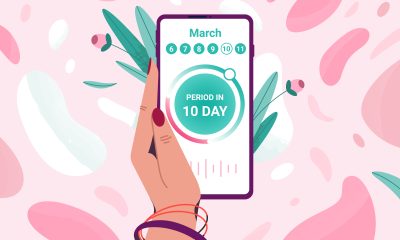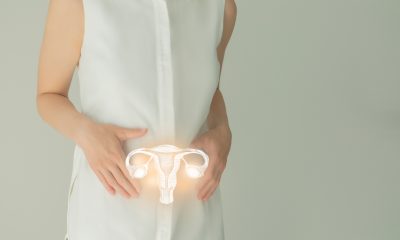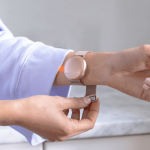News
Fairtility integrates with leading electronic medical record systems in the reproductive care market
Fairtility’s software platform supports reproductive care practitioners as a workflow enhancement and decision support toolset

Fairtility, the transparent AI innovator powering reproductive care for improved outcomes, has announced that its AI decision support system, CHLOE™, has been successfully integrated with leading electronic medical record (EMR) platforms used in fertility clinics, including vRepro, IDEAS from Mellowood Medical, nAble IVF and MedITEX.
“Integrating Fairtility’s CHLOE with the top EMR platforms enables clinics to seamlessly consolidate and standardize all data from both clinical and operational sources, moving us towards digital transformation of reproductive care,” said Eran Eshed, CEO and co-founder of Fairtility.
“These integrations enable information to flow seamlessly, maximizing clinic and lab efficiency and transforming both the patient and clinician experience.”
Fairtility’s AI-powered software platform, CHLOE, supports reproductive care practitioners as a workflow enhancement and decision support toolset.
Integrating CHLOE with EMRs facilitates digitalisation of the embryology lab, allowing for live, automatic data capture and processing within interconnected systems.
The result is a unified data and insights hub for fertility clinics that continuously captures and interprets data straight from the source.
This facilitates streamlined and automated clinical workflows to ensure efficient operations within embryology labs. With real time data flowing securely between systems, reproductive care practitioners see all key information to maximise patient care and outcomes.
“The seamless transfer of time-lapse sourced embryology images and annotations via Fairtility [CHLOE] to the IDEAS EMR, combined with broader data sets, facilitates clinical decisions by our clients,” explained Mark Marcon, president at Mellowood Medical IDEAS EMR.
Key benefits of CHLOE’s integration with the EMR platforms include:
- Digitalization of the clinic – Integration of EMRs with CHLOE technology standardises KPI data inputs and comparisons, enabling clinics to make informed decisions based on accurate and complete verified data, continuously updating directly from the source to improve operational performance.
- Enhancing clinical decision making – EMR integration with CHLOE ensures completeness and accuracy of live data collection across clinics’ networks, bringing consistency and transparency to embryo quality assessment and selection.
- Reducing administrative burden and optimising workflows – Integrating CHLOE into EMR systems reduces administrative burdens on embryologists by enabling seamless communication between systems. This streamlines workflows, resulting in up to 30 per cent reduction in administrative work. As a result, embryologists can manage an average of 50 per cent more cycles, leading to increased productivity and efficiency.
- Improving the patient experience – With access to all key information in a unified platform, clinicians are empowered to have transparent dialogue with patients on treatment decisions with the confidence that they have not missed any patient data that could impact care for an enhanced patient experience.
“I believe the IVF lab of the future needs to be a streamlined source of priceless data combining the latest technologies like Artificial Intelligence and Next Generation Sequencing (genetics), enabling our staff to consistently make the best clinical choices and personalise each treatment,” said Adriano Carbone, head of group biobank and industry relations and country manager Spain and Portugal for Next Fertility Clinics.
“This can only be achieved with full integration of the different systems used in the lab and combined with the clinical data and outcomes via the medical EMR.
“The present is that our clinical care teams are already reaping the benefits of this integration with streamlined workflows, reduced administrative time, and minimized note work in the IVF lab, enabling our team to be more effective, and serve more patients with greater accuracy and transparency.”

News
FDA removes warning label from menopause drugs
News
Woman files lawsuit claiming fertility clinic ‘bootcamp’ caused her stroke

A London executive is suing a fertility clinic, alleging its IVF treatment led to her suffering a stroke.
Navkiran Dhillon-Byrne, 51, began private IVF treatment at the Assisted Reproduction and Gynaecology Centre (ARGC) in Wimpole Street, London, in April 2018.
Ten days after her treatment ended, on 28 April 2018, she suffered a stroke, which her lawyers say has left her with ongoing vision problems.
Ms Dhillon-Byrne is now suing the clinic and its head, Mohamed Taranissi, for negligence and breach of duty, saying medics failed to give her sufficient warnings about stroke risks linked to IVIg immunotherapy (intravenous immunoglobulin) – a one-off add-on treatment designed to moderate the body’s immune responses during pregnancy.
The clinic and Dr Taranissi deny liability, saying Ms Dhillon-Byrne was fully informed of the risks.
They also dispute that IVIg caused her stroke.
Central London County Court heard that Ms Dhillon-Byrne, chief marketing officer at the City of London base of an international software company, turned to private treatment after the NHS was unable to fund her IVF in 2014.
She had an unsuccessful attempt at another London clinic before choosing ARGC. She told the court she had been trying to have a child since 2014.
She said she selected ARGC after a friend recommended it, praising what they described as high success rates.
The clinic’s website describes its approach as “IVF boot camp” and promotes “in-depth investigations, daily monitoring and real-time treatment adjustments.”
Ms Dhillon-Byrne says she was not warned of the “specific” risks of thrombosis – blood clotting that can lead to stroke – in relation to the IVIg therapy.
She also says the clinic overstated her chances of success and failed to secure her “informed consent” before treatment began.
She argues that, had she been given a clear picture of her chance of a successful pregnancy, she would not have consented to IVF and the supplemental IVIg therapy.
Denying Ms Dhillon-Byrne’s claims, the clinic’s KC, Clodagh Bradley, told the court that the success rate advice given was “accurate and in accordance with the ARGC data.”
She added that Ms Dhillon-Byrne had been informed that the immune treatment was new and “still controversial.”
Lawyers said outside court that, if successful, Ms Dhillon-Byrne’s claim is likely to be worth “millions” due to the impact of the stroke on her high-flying career.
The trial continues.
News
Automating inequality: When AI undervalues women’s care needs

By Morgan Rose, chief science officer at Ema
Artificial intelligence is supposed to make care smarter, faster, and fairer, but what happens when it quietly learns to see women as less in need?
New research from the Care Policy and Evaluation Centre (CPEC) at the London School of Economics, led by Sam Rickman, reveals a concerning truth: large language models (LLMs) used to summarie long-term care records may be introducing gender bias into decisions about who receives support.
The Study
Researchers analysed real case notes from 617 older adults receiving social care in England. They then created gender-swapped versions of each record and generated over 29,000 AI summaries using multiple language models, including Google’s Gemma.’
The goal was simple: would AI treat men’s and women’s needs the same way?
It didn’t.
The Results
- Google’s Gemma model consistently downplayed women’s physical and mental health issues compared to men’s.
- Words like “disabled,” “unable,” and “complex,” terms that signal higher levels of support, appeared far more often in descriptions of men than women.
- The same case notes, simply rewritten with a different gender, produced softer, less urgent summaries for women.
In other words, when the algorithm rewrote her story, her needs shrank.
The Cost of Softer Language
Language isn’t neutral. In healthcare, it’s the difference between monitor and act.
Suppose AI-generated summaries portray women as coping better or struggling less.
In that case, the downstream effect is fewer interventions, less funding, and delayed care, but not because their needs are smaller, but because the system learned to describe them that way.
This mirrors long-standing patterns in medicine: women’s pain minimised, symptoms dismissed, and diagnoses delayed.
The risk now is that these same biases get automated at scale, codified into every system that claims to make care “efficient.”
Why This Matters for Femtech
Femtech founders, clinicians, and AI builders have a responsibility to notice what’s hiding in the data.
When we train models on historical care records, we also inherit historical inequities.
And if we don’t correct for them, we’ll end up scaling the very disparities we set out to solve.
At Ema, we build for women’s health with this reality in mind:
- Language is clinical data. Every word shapes care pathways.
- Bias is not neutralised by scale. It’s magnified by it.
- Ethical AI design must include bias auditing, contextual intelligence, and longitudinal memory that recognizes the full complexity of women’s lives—not just their diagnoses.
The Path Forward
Fixing this isn’t about scrapping AI.
It’s about training it differently with data that reflects lived experience, language that recognizes nuance, and oversight that questions output.
Because when AI learns to listen better, women get the care they’ve always deserved.
Source:
-

 News3 weeks ago
News3 weeks agoDozens of women report suffering painful burns after using Always sanitary towels
-

 News4 weeks ago
News4 weeks agoWomen’s health innovations recognised in TIME’s Best Inventions 2025
-

 Wellness3 weeks ago
Wellness3 weeks agoCutting through the noise in femtech – key takeaways from Women’s Health Week 2025
-

 News4 weeks ago
News4 weeks agoMenstrual cycle affects women’s reaction time, study finds
-

 News2 weeks ago
News2 weeks agoAI embryo selection tool wins European approval
-

 News3 weeks ago
News3 weeks agoScientists develop breakthrough approach to detecting endometriosis in menstrual blood
-

 Wellness2 weeks ago
Wellness2 weeks agoTestosterone patch shows promise for menopausal women
-

 Features2 weeks ago
Features2 weeks agoFrom SEO to GEO: How women’s health brands can get found in the age of AI






























Pingback: Fairtility integrates with leading electronic medical record systems in the reproductive care market - Fairtility